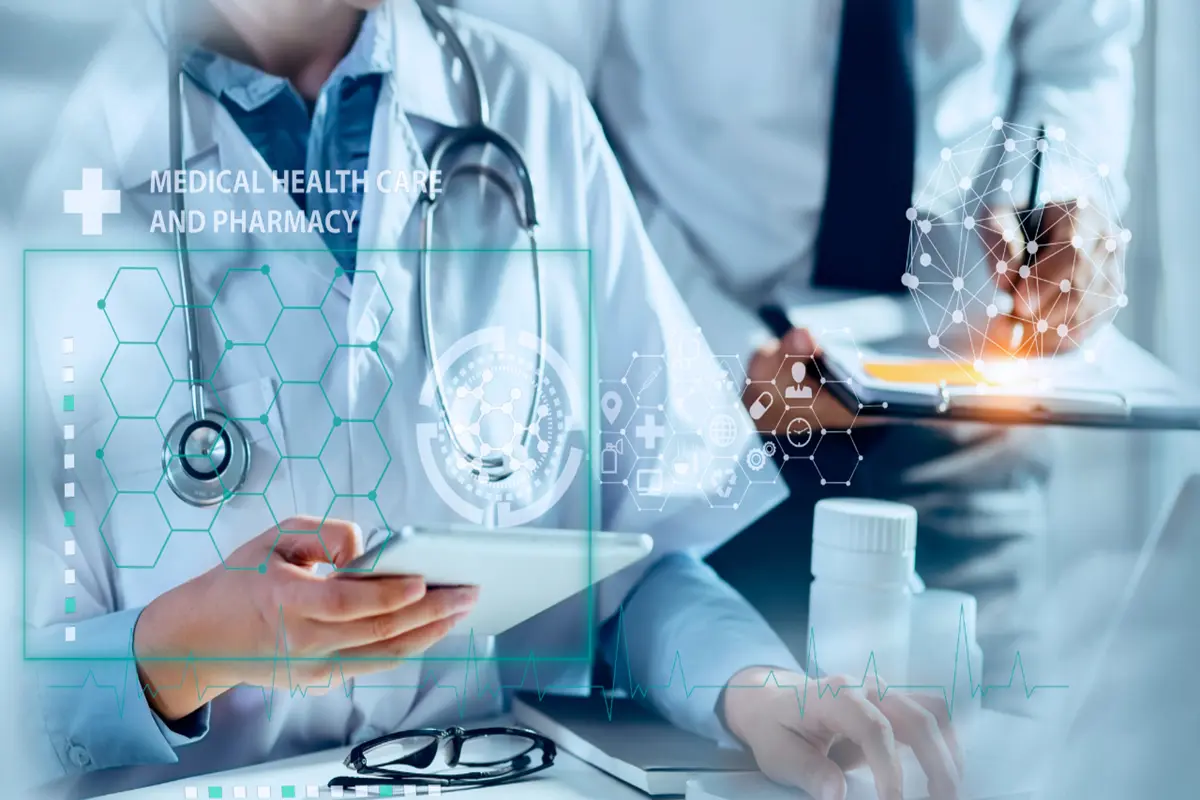Revolutionizing Healthcare: The Impact of AI Technology in the Modern Healthcare Industry

Revolutionizing Healthcare: The Impact of AI Technology in the Modern Healthcare Industry
In recent years, the healthcare industry has been experiencing a technological revolution like never before, with the integration of artificial intelligence (AI) technologies leading the way. From streamlining administrative tasks to improving patient care and outcomes, AI has become a powerful tool in transforming the way healthcare is delivered. In this article, we will explore the various ways in which the latest AI technology is revolutionizing the modern healthcare industry.
-
Personalized Treatment Plans: One of the most significant benefits of AI in healthcare is its ability to analyze vast amounts of patient data to create personalized treatment plans. By leveraging machine learning algorithms, AI can identify patterns and trends in patient data that human healthcare providers may overlook. This allows for more accurate diagnoses, tailored treatment plans, and better outcomes for patients. AI can take into account factors such as genetics, lifestyle, environmental factors, and past medical history to create treatment plans that are specifically tailored to each individual patient.
-
Predictive Analytics: AI technology can also be used to predict and prevent adverse health events. By analyzing patient data in real-time, AI algorithms can identify patients who are at risk of developing certain conditions or complications. This enables healthcare providers to intervene early, potentially preventing serious health issues and reducing healthcare costs. For example, AI can analyze data from wearable devices to monitor a patient's vital signs and detect early warning signs of health problems, allowing for timely intervention.
-
Medical Imaging and Diagnostics: AI-powered medical imaging technology has revolutionized the field of diagnostics. Machine learning algorithms can analyze medical images such as X-rays, MRIs, and CT scans with incredible accuracy, helping radiologists detect abnormalities and make more informed diagnoses. This not only speeds up the diagnostic process but also improves the overall quality of patient care. AI can assist radiologists in detecting subtle changes in images that may indicate the presence of disease, leading to earlier detection and treatment.
-
Virtual Health Assistants: AI-powered virtual health assistants are becoming increasingly popular in the healthcare industry. These virtual assistants can provide patients with personalized health advice, remind them to take medication, schedule appointments, and even assist with post-discharge care. By leveraging natural language processing and machine learning, virtual health assistants can enhance patient engagement and improve health outcomes. Virtual health assistants can also provide patients with access to healthcare information and resources, empowering them to take control of their health and well-being.
-
Administrative Efficiency: AI technology is also being used to streamline administrative tasks in healthcare facilities. From automating appointment scheduling and billing processes to managing electronic health records, AI-powered systems can help healthcare providers save time and resources, allowing them to focus more on patient care. AI can automate repetitive tasks, reduce errors, and improve workflow efficiency, enabling healthcare providers to deliver care more effectively and efficiently.
-
Drug Discovery and Development: AI is revolutionizing the process of drug discovery and development. By analyzing vast amounts of biological data, AI algorithms can identify potential drug candidates more quickly and accurately than traditional methods. This has the potential to accelerate the development of new treatments for a wide range of diseases, ultimately improving patient outcomes. AI can analyze biological data to identify drug targets, predict drug interactions, and optimize drug formulations, leading to the development of safer and more effective treatments.
-
Remote Patient Monitoring: AI technology enables remote patient monitoring, allowing healthcare providers to track patients' health status outside of traditional healthcare settings. By using wearable devices and sensors, AI can collect real-time data on patients' vital signs, activity levels, and other health metrics. This data can be analyzed to detect changes in a patient's health status and alert healthcare providers to potential issues before they escalate. Remote patient monitoring powered by AI can improve patient outcomes, reduce hospital readmissions, and enhance the overall quality of care.
In conclusion, the latest AI technology is transforming the modern healthcare industry in profound ways. From personalized treatment plans and predictive analytics to medical imaging and diagnostics, virtual health assistants, administrative efficiency, drug discovery and development, and remote patient monitoring, AI is revolutionizing every aspect of healthcare delivery. As AI technology continues to advance, we can expect even more innovations that will further improve patient care, increase efficiency, and ultimately save lives. The future of healthcare is here, and it is powered by AI.


